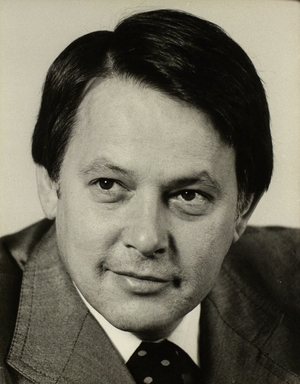Washington, DC - Bernard Landry died on 6 November. Former Prime Minister of Quebec, a leader of the Parti Quebecois, and life-long devotee of an independent Quebec, Landry was a senior figure in Quebec politics throughout his career.
Now that the official period of mourning has passed with a state funeral, and the tributes and formal recognitions have been written, perhaps there remains a moment for an engaged outside (American) observer of Canada-Quebec to offer further perspectives.
It was my considerable good fortune to be the Political Minister Counselor at the U.S. Embassy in Ottawa from 1992-96, perhaps the most eventful era in modern Canadian politico-history. During this period, there was a national referendum (Charlottetown Accord) to refocus Canadian unity (defeated); a national election (that virtually annihilated the Tory Party); a Quebec election that jettisoned Liberals and installed a Pequist government; and a 1995 Quebec referendum on its relations with/independence from Canada.
Obviously, Canadian national unity was important for the United States, and it was the issue that most engaged me personally and professionally. In seeking the “valid interlocutors” on all sides of the topic, I was quickly directed to Bernard Landry as particularly knowledgeable on every facet of Quebec’s drive for sovereignty.
 And, indeed, Landry was invariably intelligent, articulate, personable, honest, and blunt in articulating Pequiste game plans and objectives. In effect, he said, first we will defeat Charlottetown; second, we will defeat the Tory government; third, we will defeat the Quebec Liberals; and then we will win a referendum on Quebec sovereignty. He outlined these plans not with any expectation that Washington would support such objectives nor to persuade me personally of the virtues of Quebec independence, but rather to avoid any surprises in Washington (or spasmatic hostile reaction) based on lack of prior information. He was well aware the United States had (and has) no interest in a fractured Canada with which Washington has enjoyed long, positive, historical relations. Rather, Landry sought to lay groundwork for a grudging US recognition that an independent Quebec would be a “no problems,” reliable economic/political state--not some “northern Cuba.”
And, indeed, Landry was invariably intelligent, articulate, personable, honest, and blunt in articulating Pequiste game plans and objectives. In effect, he said, first we will defeat Charlottetown; second, we will defeat the Tory government; third, we will defeat the Quebec Liberals; and then we will win a referendum on Quebec sovereignty. He outlined these plans not with any expectation that Washington would support such objectives nor to persuade me personally of the virtues of Quebec independence, but rather to avoid any surprises in Washington (or spasmatic hostile reaction) based on lack of prior information. He was well aware the United States had (and has) no interest in a fractured Canada with which Washington has enjoyed long, positive, historical relations. Rather, Landry sought to lay groundwork for a grudging US recognition that an independent Quebec would be a “no problems,” reliable economic/political state--not some “northern Cuba.”
In the almost quarter-century since the defeat of the Quebec independence referendum, Landry and other Quebec sovereignists sought to identify “winning conditions” for a successful referendum. Such have not appeared, but they left me pondering some “alternative universes”:
(I) French Speaking Immigrants Return to Canada. The 1900 census identified 440,000 French-speaking immigrants primarily in Massachusetts, Rhode Island, and New Hampshire. Drawn by industrial/factory work, contributed substantially to U.S. culture. Indeed, one of the iconic Iwo Jima flag raisers was French-Canadian origin (Rene Gagnon). Just imagine, however, if they had never left Quebec--or that substantial numbers returned desiring to make Quebec a “real country” just like the USA? A change in the referendum outcome?
(II) Outreach by Pierre Trudeau. One of Landry’s repeated vignettes, told with burning ember residual irritation even decades old, featured a hike up snowy/icy McGill Hill. Driving past the struggling students, Trudeau called out, “Marchons paysans.” But just think if Trudeau instead had said, “Jump aboard. Push. We’re all in this together.” Enough to prompt an attitude shift by Landry? To depict Trudeau as other than an arrogant, elitist twit?
(III) Quebecers Willing to Take a Chance. It would always be an uphill fight to convince Quebecers that the “unknown” of independence would be better than the status quo. As one sovereignist told me, “Canada is not the gulag.” And Lucien Bouchard once commented, “If Meech Lake (an earlier effort to cement Quebec strongly into Canadian national unity) had succeeded, I wouldn’t be here” [leading the movement for Quebec independence]. Such a Canada-Quebec fusion could have seen Bouchard as prime minister; Landry as foreign minister; and other senior Quebecers as senior Canadian leaders for a generation.
But it was the great Sisyphean challenge for sovereigntists to convince Quebecers that relatively small (temporary) losses in personal/provincial income were worth enduring to become an independent country. And they failed.
But countries that never were are hardly historically unique. Think Confederate States of America; think the Basque in Spain; think “Kurdistan” still fighting for birth; think Ibos in Nigeria. And now think Quebec--where a generation of energetic, intelligent, talented men and women poured their lives into a cause that never came to be. Perhaps, however, their greatest characteristic was that they did so with consummate commitment to democracy. There were no “to the barricades” calls, even after heart-breaking defeats.
If not the last of the last, Landry was their epitome.
